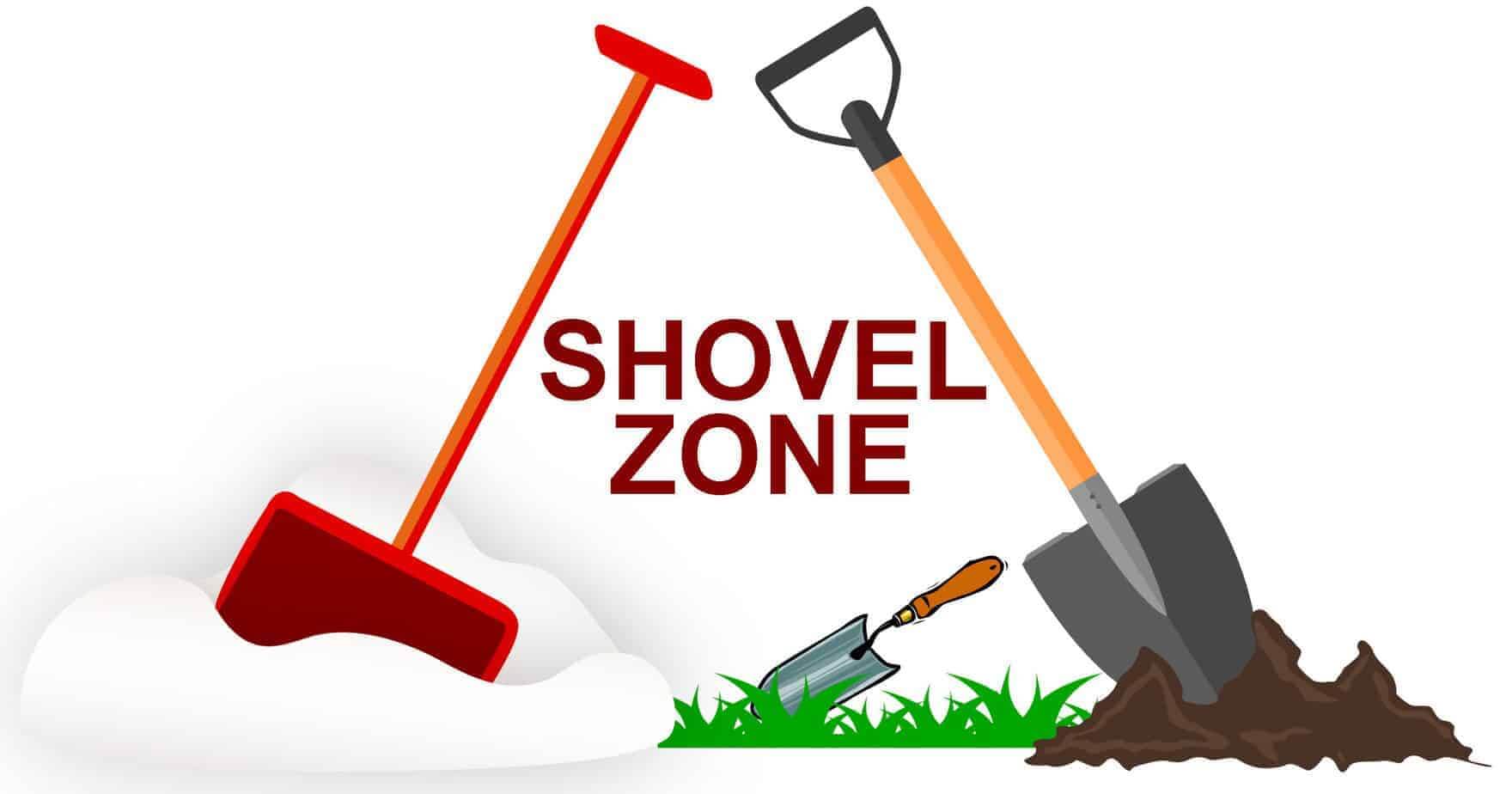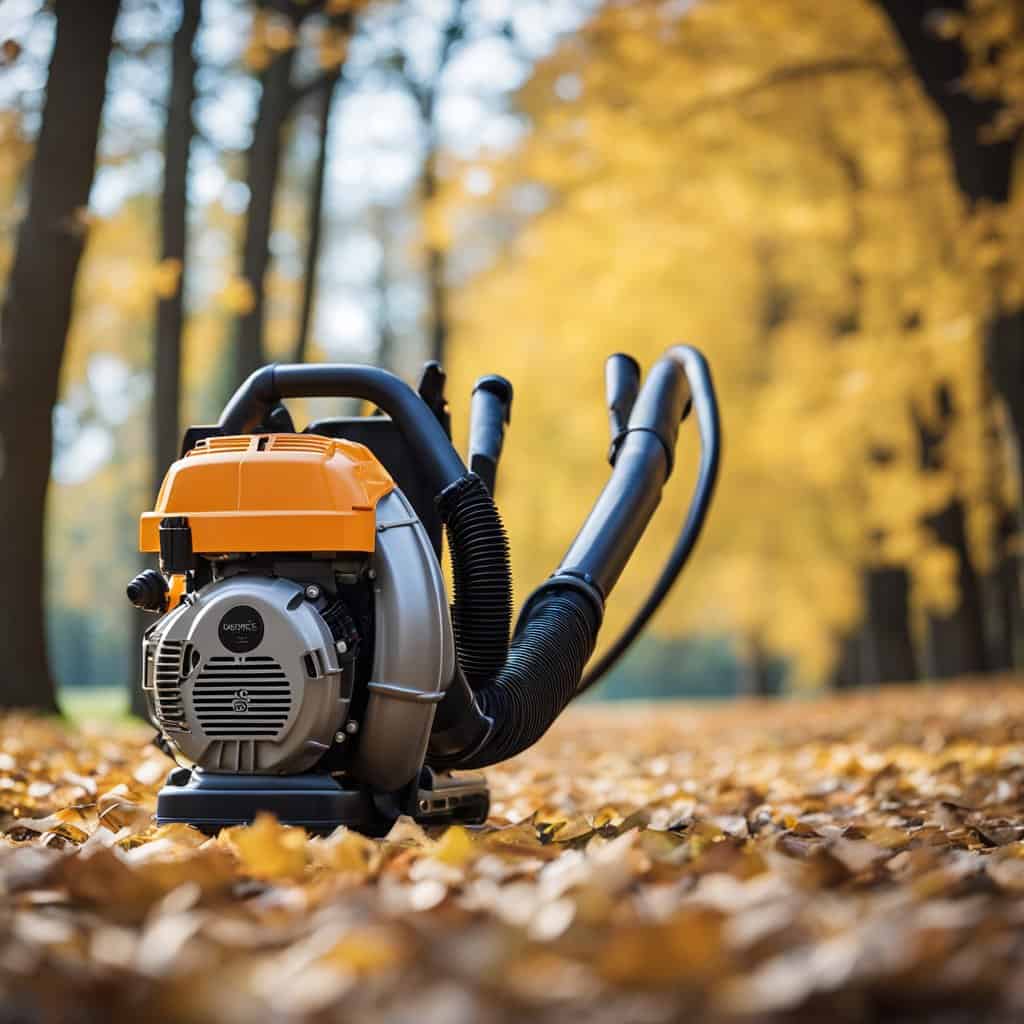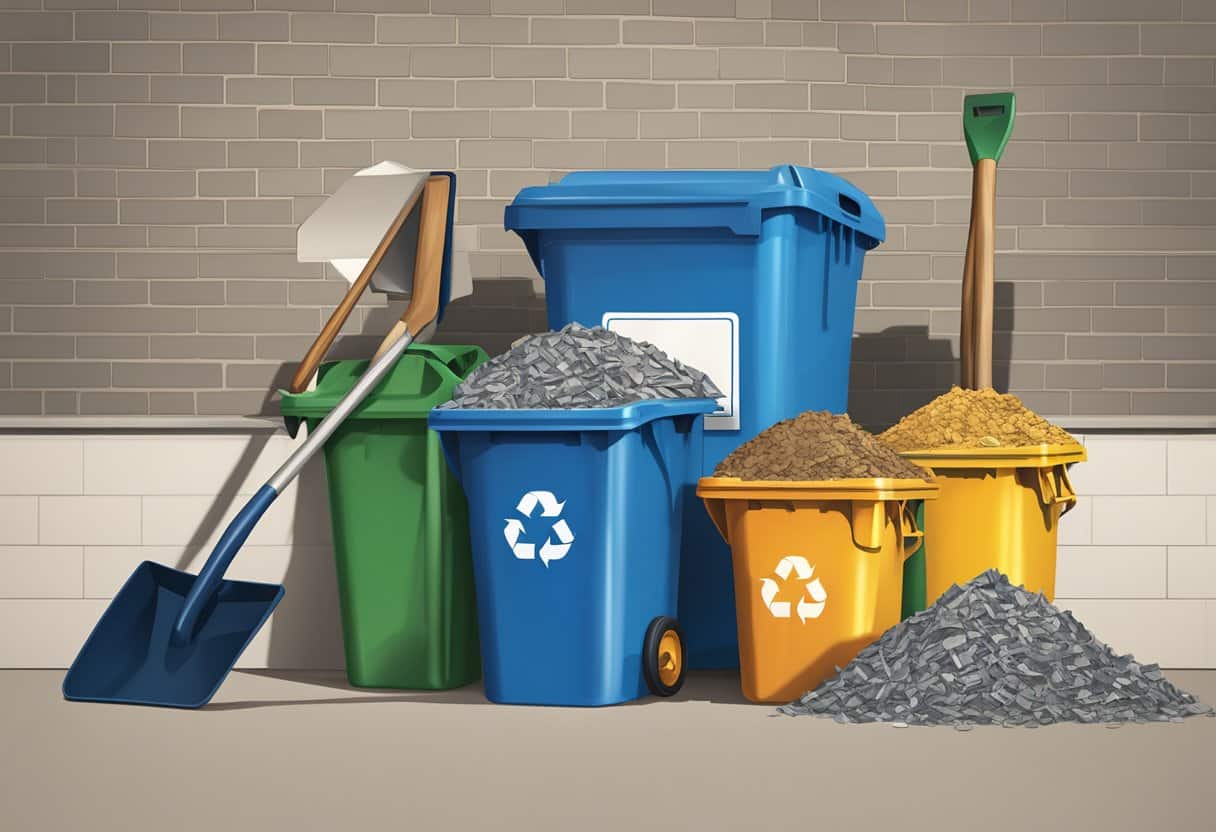Winter is here, and snow has become an unwelcome guest that keeps piling up on our driveways and sidewalks. Clearing it can be quite a hassle, and as someone who has tried multiple methods, I have found that using a gas powered leaf blower for snow can be advantageous and risky when clearing snow in the winter.
Table of Contents
Gas Powered Leaf Blower For Snow And Their Mechanism
In my experience, leaf blowers come in different types, with gas, electric, battery, and corded being the most common. Each class has unique advantages and disadvantages, and it’s essential to understand their mechanisms to make informed decisions.
Gas powered blowers are more powerful than electric and battery operated model sources. While these machines have the advantage of mobility and power, they also emit pollution and can be pretty noisy.
On the other hand, electric leaf blowers, both corded and battery powered, are significantly quieter and emit fewer pollutants. However, they may lack the power and runtime of gas powered models. For example, corded electric blowers require access to a power source, which limits mobility, while battery powered models need sufficient battery life to complete a task.
Environmental Effects Of Gas Powered Leaf Blowers For Snow
One of the significant drawbacks of using a gas powered leaf blower for snow is their contribution to air pollution. These machines emit harmful pollutants like carbon monoxide, nitrogen oxides, and hydrocarbons from their exhaust. For instance, a 2011 study by Edmunds found that a two-stroke gas powered leaf blower produced more pollution than a 6,200-pound Ford F-150 SVT Raptor pickup truck. Furthermore, gas powered leaf blowers often lift and disperse dust and other particulate matter from the ground, which may aggravate respiratory issues and lead to other health problems.
Another downside I’ve observed while using gas powered leaf blowers is their excessive noise. Some models can reach noise levels of up to 112 decibels, which not only disturbs nearby residents but can also cause hearing damage or lead to tinnitus, stress, and other noise induced health issues.
Lastly is the impact of gas powered leaf blowers on climate change. By burning fossil fuels, these machines release greenhouse gases into the atmosphere, making me wonder if there might be more environmentally friendly alternatives, such as electric or battery powered leaf blowers, that could significantly reduce my carbon footprint while clearing snow effectively.
Potential Health Risks of Gas Powered Leaf Blowers
I discovered that gas powered leaf blowers pose several health hazards. The American Lung Association states exposure to the toxic fumes and particulates emitted by gas powered leaf blowers can lead to long term health effects. These machines emit carcinogens and other hazardous substances that contribute to air pollution and can lead to premature death, asthma attacks, and hypertension. As mentioned in a USA TODAY article, gas powered lawn equipment like leaf blowers can produce more ozone pollution than all the millions of cars in California combined.
While using a gas powered leaf blower, I noticed how pollution and noise could be particularly harmful to specific at risk groups with pre existing health conditions. Children and older individuals have more sensitive respiratory systems, making them more susceptible to the detrimental effects of the particulates and pollutants emitted by gas powered leaf blowers. Excessive exposure to these toxic fumes could exacerbate health problems like asthma.
Not only did I notice the potential risks associated with air pollution while using a gas powered leaf blower, but I also became aware of the link between these machines and hearing loss. The CDC explains that using a gas powered leaf blower for extended periods can lead to hazardous noise levels to one’s hearing, potentially resulting in conditions like tinnitus and even permanent hearing loss.
Alternatives to Using Gas Powered Leaf Blowers
An alternative to gas powered leaf blowers is electric or battery powered blowers. I have used both corded and battery powered electric models, and while they lack the power of their gas counterparts, they are much more environmentally friendly. Electric blowers produce significantly less noise, making them a better choice for yard work in community spaces, where noise pollution is a concern.
When using a corded electric blower, I found it easy to maneuver in my yard, although it required an extension cord for larger areas, which is inconvenient in cold weather. Battery powered electric models offer the freedom to move around without being tethered to an outlet, but they require frequent recharging, especially when the weather is cold, as batteries do not do well in freezing temperatures.
Regulations and Advocacy Around the Usage of Leaf Blowers
As a responsible homeowner, I stay informed about potential changes in regulations and the advocacy efforts of groups that focus on the impact of law and garden equipment on the environment. In the past few years, a growing movement has called for the complete ban or further regulation of gas powered leaf blowers. This demand stems primarily from concerns about noise pollution, emissions, and the potential health risks to workers and community members.
Many communities across the United States have introduced bans or limitations on operating gas powered leaf blowers in response to noise and air pollution concerns. For example, laws banning or restricting the use of gas powered leaf blowers have been passed in Washington, D.C., starting January 2022.
The California Environmental Protection Agency has also taken action to regulate the emission levels of small off road engines for lawn and garden equipment like leaf blowers.
Many advocacy groups and environmentalists are pushing to adopt electric or battery powered alternatives to gas powered leaf blowers. These alternative options typically generate less noise and emit fewer pollutants, making them more suitable for residential areas where the noise and emissions produced by gas powered leaf blowers can negatively impact the community. However, I wonder if these groups have considered the negative impact on health and society of having snowy or icy surfaces not cleared by any method or the health risks to individuals clearing snow with a shovel.
Final Thoughts
Gas powered leaf blowers are powerful machines that effectively clear away snow. However, their use presents some challenges when it comes to snow removal. On the one hand, they can be incredibly convenient in clearing light, powdery snow, saving me valuable time and energy compared to manual shovelling. But on the other hand, using a gas powered leaf blower also comes with its dangers, such as the emission of harmful pollutants and potential risks when using the equipment in wet conditions.
Frequently Asked Questions
How effective are gas powered leaf blowers for snow removal?
I’ve found gas powered leaf blowers effective for snow removal, particularly for light snowfall. Their power and maneuverability make them helpful in clearing walkways and driveways quickly. However, a dedicated snow blower might be more appropriate for heavy snowfall or larger areas.
Are gas snow blowers superior to electric ones?
Both gas and electric leaf blowers have their pros and cons. Gas leaf blowers generally offer more power but can be louder and more polluting. On the other hand, electric leaf blowers are quieter and more environmentally friendly but less powerful.
How does using a leaf blower on snow differ from using it on leaves?
Clearing snow with a leaf blower differs from using it on leaves, primarily because snow is heavier and denser. As a result, more power is needed to clear snow effectively. Additionally, snow can stick together and become more challenging to move, especially when wet or partially melted.







